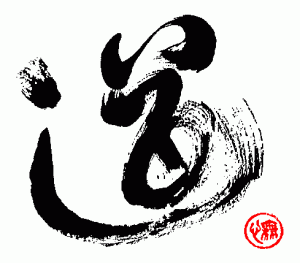Many Ways
 As I mentioned at the end of yesterday’s post, Ursala K. Le Guin has published a new version of the Tao Te Ching. She writes, “This is a rendition, not a translation. I do not know any Chinese. I could approach the text at all only because Paul Carus, in his 1898 translation of the Tao Te Ching, printed the Chinese text with each character followed by a transliteration and a translation.”
As I mentioned at the end of yesterday’s post, Ursala K. Le Guin has published a new version of the Tao Te Ching. She writes, “This is a rendition, not a translation. I do not know any Chinese. I could approach the text at all only because Paul Carus, in his 1898 translation of the Tao Te Ching, printed the Chinese text with each character followed by a transliteration and a translation.”
Le Guin goes on to say that she used Carus’s text as “a touchstone for comparing other English translations one with another. If I could focus on which word the translators were interpreting, I could begin to understand why they made the choice they did. I could compare various interpretations and see why they varied so tremendously; could see how much explanation, sometimes how much bias, was included in the translations; could discover for myself that several English meanings might lead me back to the same Chinese word.”
I love that she was not daunted by all those who had gone before her. She had fallen so in love with the text that she wanted to know it intimately, and she managed to do that, even though she couldn’t actually read the language it was originally written in. She lived with the text as best she could until she got to know it so deeply that she was able give it back to the world in her own voice. Wow.
Here’s a sample of her version (Chapter 1):
Taoing
The way you can go
isn’t the real way.
The name you can say
isn’t the real name.
Heaven and earth
begin in the unnamed:
name’s the mother
of the ten thousand things.
So the unwanting soul
sees what’s hidden,
and the ever-wanting soul
sees only what it wants.
Two things, one origin,
but different in name,
whose identity is mystery.
Mystery of all mysteries!
The door to the hidden.
***
Here’s the same text, from the 1972 translation by Jane English:
One
The Tao that can be told is not the eternal Tao.
The name that can be named is not the eternal name.
The nameless is the beginning of heaven and earth.
The named is the mother of ten thousand things.
Ever desireless, one can see the mystery.
Ever desiring, one can see the manifestations.
These two spring from the same source but differ in name: this appears as darkness.
Darkness within darkness.
The gate to all mystery.
***
I remember loving the ’72 translation, finding it beautiful, thinking it profound…but having no clue as to what it said. Reading Le Guin’s version, I still find it beautiful, and profound…but now I feel like I can actually begin to follow it!
Wow again.
